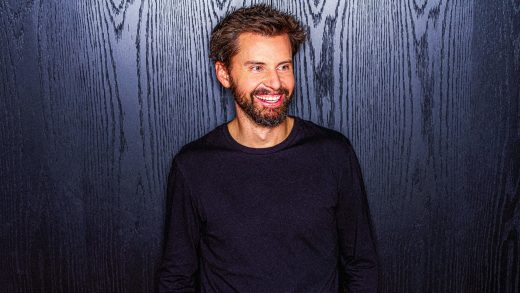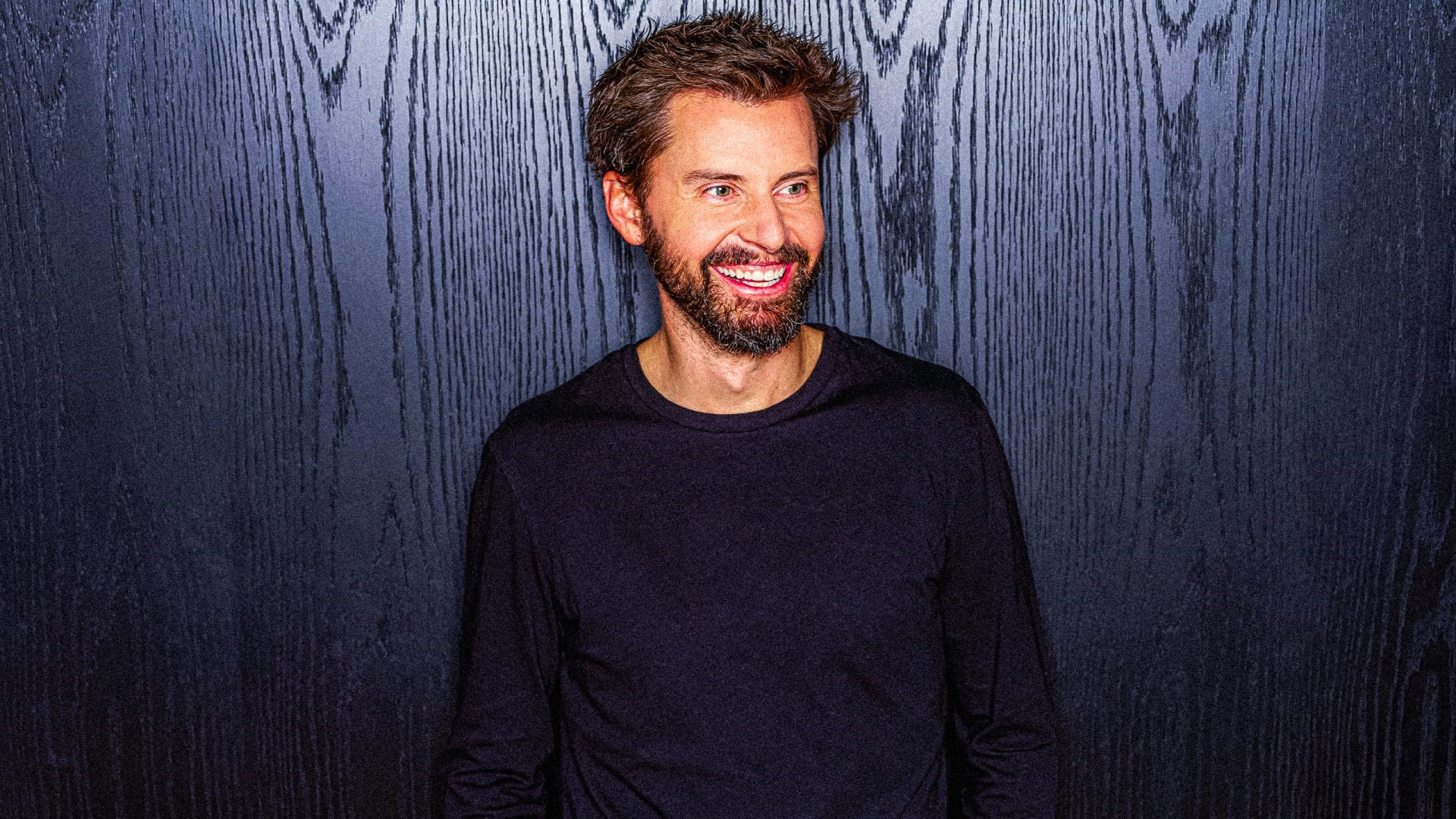How Hinge CEO Justin McLeod plans to use AI to change how we date
How Hinge CEO Justin McLeod plans to use AI to change how we date
Hinge’s founder and CEO Justin McLeod on the state of dating in 2024—and what it will be like to have an AI dating coach.
Once upon a time, dating apps were distinct, each catering to a different demographic or lifestyle. Today, they’ve blurred together, like an endless stream of swipes, deepening a trend of user burnout. In that struggling sea of love, Hinge is continuing to grow and sustain social relevance. Hinge’s founder and CEO Justin McLeod explores the state of dating in 2024, the sibling rivalry with other apps such as Tinder, and why he’s so excited about AI as a potential dating coach.
This is an abridged transcript of an interview from Rapid Response, hosted by a former editor-in-chief of Fast Company, Bob Safian. From the team behind the Masters of Scale podcast, Rapid Response features candid conversations with today’s top business leaders navigating real-time challenges. Subscribe to Rapid Response wherever you get your podcasts to ensure you never miss an episode.
How Hinge stands out in the crowd
Earlier on, it seemed like each of the dating apps were very distinct; but more recently, there’s talk that they all blur together. How do you think about that?
I started Hinge in 2011. At the time, there were dating websites like match.com and eHarmony, but no one my age used those. Then, a couple other apps with the swipe feature launched and they won the game, right? Like, it totally opened the market up to the next generation.
So we rebooted Hinge in 2015. I let go of half of the company. We started over from scratch, and we built the dating app designed to be deleted. Instead of focusing on engagement and retention and traditional social media metrics, we focused on one metric, which was: Are we actually getting people out on good dates?
That led to a whole host of innovations. Adding prompts to profiles, making profiles much richer, having people actually like and comment on a part of someone’s profile versus just swiping left and right. Over time, the industry has adopted a lot of those features.
The reason that Hinge has been successful, while a lot of the other apps have started to stall, is that while other people can pick off little features here and there, all our pieces work together in a really beautiful way. When you don’t have all of them tuned and synced in the right way, when you’re kind of just copying and borrowing from other apps, it doesn’t come together. It’s like, McDonald’s can offer salads but it doesn’t make them Sweetgreen. It’s a different business, right?
What I think is interesting is that now suddenly there’s a paradigm shift happening once again with AI. I think we’re going to see a lot of diversification, innovation, and opportunity.
AI: The dating coach
When you bring up AI, are you talking about the algorithm that matches you to someone else—that that will be better? Or that the user experience will evolve because of AI?
I think that there’s two major vectors. One: Dating apps don’t work for everyone. A lot of people struggle to get their first match, from a match to a date, or to get from a date to a relationship. We haven’t been able to deliver advice and help in a really effective way. And the idea of being able to give people very personalized help building their profiles, selecting their photos, challenging them to write a better prompt, really helps people who maybe aren’t naturally good at online dating—which is a lot of people.
So this is like a dating coach then?
I think, yeah, it’s essentially. . . . One aspect of it I would call coaching. And then the second piece is the compatibility piece that we can pick up on much more nuanced signals. And people zero in on the right person much faster. So you’re not voting up and down on thousands of profiles. You’re really giving specific feedback on a select few.
Cultivating a cultural buzz
How do you think about cultivating and maintaining a cultural buzz around Hinge?
I call this the “nightclub mindset” or “nightclub model” of dating apps, which is like one’s cool, and then suddenly the next one is cool. The marketing for us is not about gimmicks or one-offs. I think that any entrepreneur who’s made a long journey of building a real established successful company will tell you that it’s not one moon shot or random idea. It’s a thousand little things that you have to do over time. We have to pay attention to culture and stay relevant; but it’s not about being trendy, it’s about being effective and meeting users where they are.
So our marketing mostly isn’t about trying to get attention by saying something provocative. It’s about trying to be really helpful to users. We try to actually deliver advice in data reports. We recently did a campaign called Not Frequently Asked Questions for our queer audience [which] has fewer dating resources than most people. And so we sourced questions from the community. We asked knowledgeable people to answer those. And then we put those up on billboards so that everyone could see and know that this dating resource is available to them. So that I think is how we stay in touch with culture.
And then, with regard to our business model, I will say that every time we’ve made the app more effective and been better at getting people off our app, the faster we grow because dating is just in the ether. People are talking about it all the time. They talk about it when they go to brunch on Sunday. It’s the number one topic of conversation. And if they’re having a good experience on our app, they’re talking about it. And that gets more and more people onto our app. And I think as long as there are single people in the world, we’re going to be okay.
I think dating apps are such a fascinating business because it’s a technological tool that you use on your own. And yet the goal is to meet someone who you’re going to see in real life and not spend all your time on your phone. And then if you succeed at that, the business loses the customer.
But then they become a walking ad for your business.
Sibling rivalry at the Match Group
You’re part of Match Group which includes a bunch of dating sites: Match, Tinder, OkCupid, Plenty of Fish . . . What are the advantages of being part of a larger group like that, and what are the drawbacks?
Especially when we got started, the learnings that you get from other apps is a great mechanism. The drawbacks? I mean, we operate Hinge very independently. People who work at Hinge or people who work at Tinder, we have a real pride around our brands and our missions. I would no sooner put an ad for Tinder on Hinge than I’m sure they would, right?
So there is internal competition. Like as an organization, Match Group is fine with that?
I describe it as like sibling rivalry. It’s friendly competition.
The drive to keep working
How do you stay in touch with the impact that you’re having on people who are dating in this difficult world?
We try to keep it really core. I think a lot of people, they start running a business and then it becomes the growth percentages and the profit margins. You forget what you’re really there for. And for us, we have an all-hands every two weeks, and we always close that with an in-depth success story. We get a stack of wedding invitations every week at Hinge, and my chief of staff unwraps each one and reads them and cries and then posts them on the wall outside my office. It’s cool to see that you’re having that level of impact on people’s lives.
ABOUT THE AUTHOR
(13)



